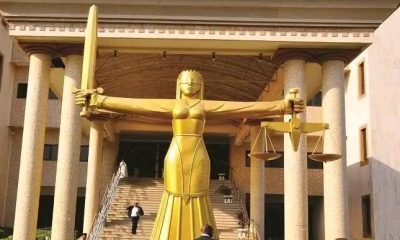News
Telecom Services May Worsen if Security Lapses Continue, Telcos Warn.

By: Ohworisi Elohor
Telecommunications operators in Nigeria had raised concerns over the worsening state of telecom services, warning that the situation could deteriorate further if security agencies failed to step up efforts to protect critical infrastructure.
It was disclosed that ongoing acts of vandalism and theft of telecom equipment across various states, had disrupted network operations and weakened the quality of service, despite recent massive investments in network upgrades and optimization.
Telecom providers admitted that services had not met expectations in recent times, but insisted the challenges were not caused by negligence on their part. According to sources within the industry, network optimization had been aggressively carried out following the marginal price adjustment approved by the Nigerian Communications Commission (NCC).
However, the benefits of these efforts had reportedly been eroded by rampant vandalism.
A senior official of one of the mobile network operators, who requested anonymity, revealed that critical infrastructure was being stolen and sold openly without repercussions. The official stated: “At the wake of the marginal price review by the NCC, network upgrades were prioritized to deliver better service. But now, vandals are carting away our installations like diesel, batteries, cables, and selling them in broad daylight. If nothing is urgently done, service quality will worsen drastically.”
The growing threat prompted the Association of Licensed Telecommunications Operators of Nigeria (ALTON) to issue a formal statement, expressing deep concern over the situation. The statement, signed by ALTON Chairman Engr. Gbenga Adebayo and Publicity Secretary Damian Udeh, emphasized the unprecedented levels of investment being made across the sector to improve service delivery.
According to ALTON, modernization of transmission systems, deployment of new technology, and expansion of fiber optic networks were underway nationwide. However, between May and July 2025, a disturbing rise in vandalism was recorded in states including Rivers, Ogun, Osun, Imo, Ekiti, Kogi, Lagos, and the Federal Capital Territory.
It was revealed that vital equipment such as fiber optic cables, rectifiers, power cables, batteries, diesel, and solar panels were frequently targeted. The stolen items were said to have been resold for domestic or commercial use, undermining the integrity of national telecom infrastructure.
The association noted that states such as Delta, Cross River, Akwa Ibom, Ondo, Edo, Kaduna, Niger, Kwara, and Abuja had witnessed a surge in such criminal activities, resulting in prolonged downtimes, service blackouts, and congestion across networks.
Concerns were also raised over the unregulated market for stolen telecom equipment. ALTON disclosed that power rectifiers and cables stolen from base stations were being openly traded. Diesel siphoned from sites was reportedly being sold on the grey market, while solar panels were stripped and repurposed for household use.
The association appealed to the public to join in protecting telecom assets, emphasizing that these systems supported critical national functions including banking, education, emergency response, and security services.
ALTON also flagged another pressing issue: the recurrent damage to underground fiber optic cables during road construction and civil works. These incidents were said to have led to significant outages and financial setbacks for operators.
In response to the crisis, ALTON made an urgent appeal to the Office of the National Security Adviser, the Inspector General of Police, the Department of State Services, and the Nigeria Security and Civil Defence Corps to deploy necessary resources to safeguard telecom infrastructure.
The association concluded by calling for a coordinated national effort involving security agencies, regulators, government, civil society, and the public. It warned that failure to act decisively could result in a total breakdown of communication services













